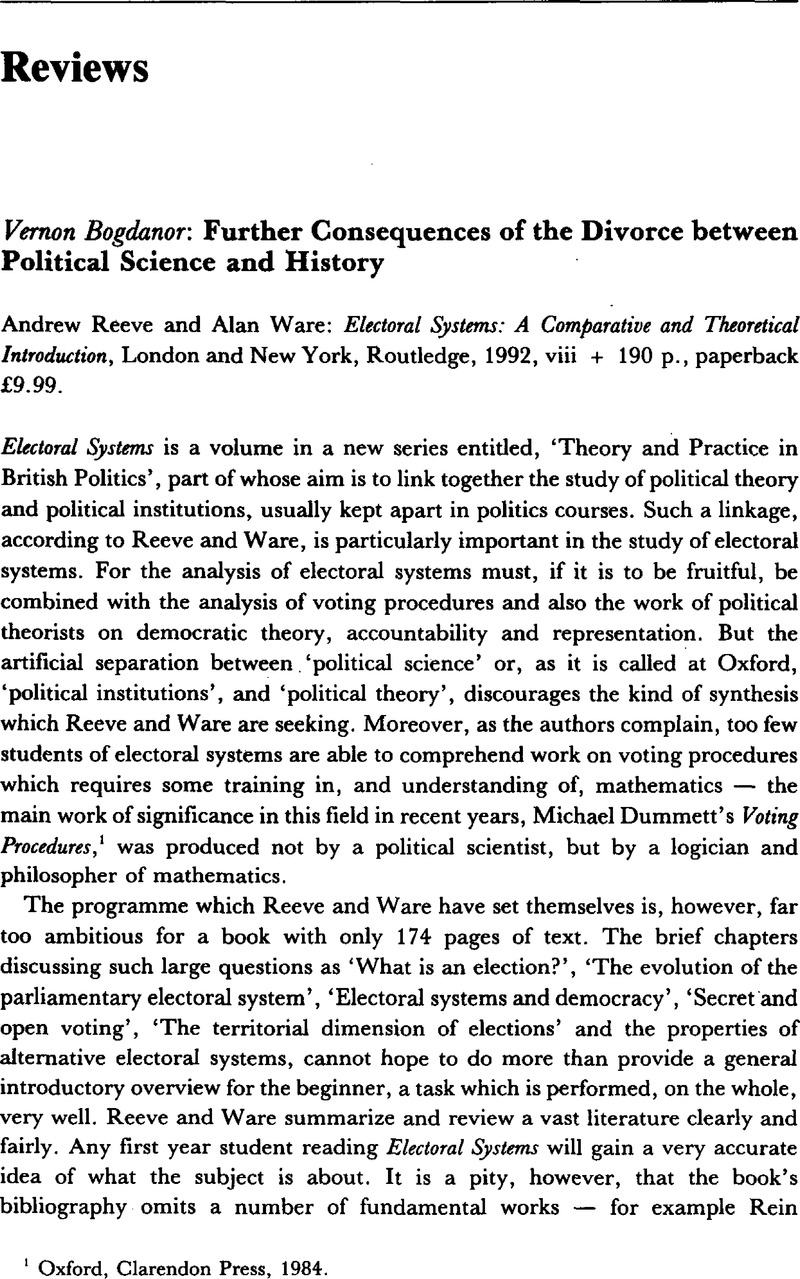No CrossRef data available.
Article contents
Further Consequences of the Divorce between Political Science and History - Andrew Reeve and Alan Ware: Electoral Systems: A Comparative and Theoretical Introduction, London and New York, Routledge, 1992, viii + 190 p., paperback £9.99.
Published online by Cambridge University Press: 28 March 2014
Abstract

- Type
- Reviews
- Information
- Copyright
- Copyright © Government and Opposition Ltd 1992
References
1 Oxford, Clarendon Press, 1984.
2 New Haven, Yale University Press, 1989.
3 London, Routledge & Kegan Paul, 1978.
4 See, for a summary of some of the errors, Bogdanor, Vernon, ‘Offering the Illusion of reform’, New Statesman and Society, 1 11 1991, pp. 29–30 Google Scholar.
5 House of Commons Debates, 1 December 1884, Vol. 380.
6 New Haven, Yale University Press, 1915.
7 Cd. 5163, 1910.
8 ibid., para 125.
9 These developments can be followed in Steed, Michael, ‘The Constituency’, in Bogdanor, Vernon (ed.), Representatives of the People? Parliamentarians and Constituents in Western Democracies, Aldershot, Gower, 1985, pp. 267–85Google Scholar, and Bogdanor, Vernon, The People and the Party System: The referendum and electoral reform in British politics, Cambridge University Press, 1981, pp. 111–35.Google Scholar Neither of these references is listed in the Reeve and Ware bibliography.
10 Or presumed self-interest. It is by no means obvious that it was in the self-interest of the Coalition Liberals—or even of Lloyd George—to scupper the proposals of the Speaker’s Conference in 1917.


